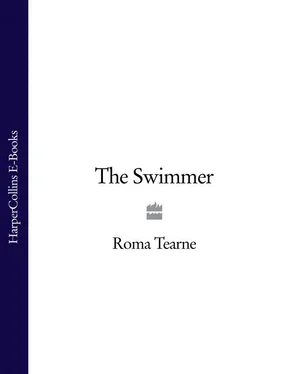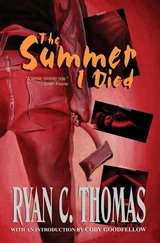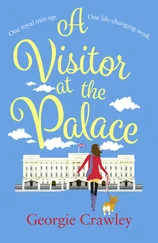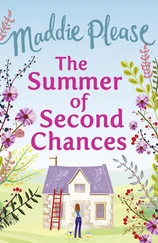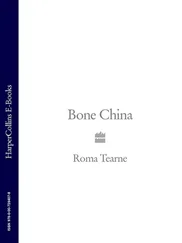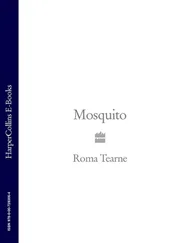‘Not enough for a story,’ said the editor, shaking his head. ‘Talk to the police, see what they think. They won’t want you alarming anyone while the circus is here.’
The journalist was expecting this response. He had just been trying it on. The editor, who understood him all too well, eyed him speculatively.
‘Take a break, John,’ he said easily. ‘Take your son to see the big top.’
John frowned. He didn’t welcome advice about what to do with his kid, but he decided it mightn’t be a bad idea to take another look at the circus that evening, when it was dark. Something was nagging at him; perhaps a return visit would clear his mind. And what could be more natural than taking his four-year-old son?
‘It won’t finish until after his bedtime,’ his wife protested. ‘And he’ll be bad-tempered tomorrow.’
But the journalist insisted, and as it had been years since she had been to a circus, his wife agreed.
‘I’ll be back in a minute,’ John announced when they were settled in their seats. His son was clutching a balloon, staring solemnly at the empty ring ahead.
Sawdust and bright lights, with a hint of tiger musk. John slipped out. The caravans’ entrances were obscured from view. When he tried to push past the barrier, he was stopped. His press pass was useless against the wall of hostility he encountered. He slipped back into his seat just as the drum rolled.
‘What are you up to?’ his wife hissed.
John shook his head, placing a finger on his lips.
‘Sshh!’ he mumbled as the show began.
The applause was deafening. No one heard the scream. No one inside the tent, anyway. By the time the story was out, it was too late; the show was over, the trapeze artist had folded himself down to the ground, the sawdust was soiled with sweat and the tent had emptied. John Ashby, freelance journalist for the Suffolk Echo, heard nothing until the next morning when his editor informed him of the event.
A circus woman in her mid to late thirties had been attacked in her caravan. A kitchen knife had been held to her throat and the threat of rape whispered in her ear. She had not seen the man’s face but his hands were dark-skinned. Later, she told the police that all her travel documents, including her British passport, had been stolen.
Cover Page
Title Page The Swimmer Roma Tearne
Dedication Barrie
Epigraph Epigraph Epigraph SOMEONE HAD PLACED THE CALVES Ria 1 2 3 4 5 6 7 Anula 8 9 10 11 12 13 14 15 16 Lydia 17 18 19 20 Acknowledgements BEHIND THE SCENES A BANDIT OR A REBEL TRUST THE TALE THE PASSIONAL SOUL Also by Roma Tearne Copyright About the Publisher Years Later in the same fields He stood at night when eels Moved through the grass like hatched fears Towards the water. Seamus Heaney A people does not carry the memory of its humiliations as an individual does. André Chamson (1940)
SOMEONE HAD PLACED THE CALVES
Ria
1
2
3
4
5
6
7
Anula
8
9
10
11
12
13
14
15
16
Lydia
17
18
19
20
Acknowledgements
BEHIND THE SCENES
A BANDIT OR A REBEL
TRUST THE TALE
THE PASSIONAL SOUL
Also by Roma Tearne
Copyright
About the Publisher
Ria
I REMEMBER IT WAS TOWARDS THE middle of August. Thursday the eighteenth, in fact. That I remember so clearly, so painfully still, tells me that I have never for one instant truly forgotten what happened. Great waves of tenderness sweep over me even now, and I am still able to feel within myself the faint, dreadful stirring of what so overwhelmingly and completely engulfed me then. That night the heat held me in a stranglehold. I remember swallowing it in huge gulps and sighs as I listened to the soft gasp of the river. A vast yearning, an unknown expectation was poised to grip me, so that some time later I thought my heart itself would burst. But first came the beginning.
Towards midnight on that evening I woke with a start to the crackle and dance of white static on the television screen. I think I must have fallen asleep with my fingers wrapped around the remote control. It was stiflingly hot, unusual for East Anglia. I remember I wiped small beads of perspiration from my face with the back of my hand, thinking how unlike Britain this was, to feel so hot. I must have been disorientated, confused rather than frightened. No, I wasn’t frightened at all on this perfectly ordinary summer night. Car headlights swept up and down the length of the garden like giant eyelids lighting up parts of the river, dipping into wetland mud before vanishing. The summer renters from Italy had returned after an evening out. I heard them slamming doors in a reckless way, laughing, happy.
‘Si, va bene,’ one of them said, faintly. ‘Capisco, capisco!’ and then they went inside.
I switched off the television without moving from my chair and the surface of the night appeared once more as an undisturbed skin. Except for a small liquid sound, quickly suppressed. So small was it that I continued to sit, glasses in hand, straining my ears, still half asleep, only half listening. Then I padded across towards the open window where the air was filled with summer fragrance. And I heard the sound again quite distinctly. A splash, some movement, then…nothing. The river licking itself, perhaps. Fully awake now, I stood bandaged in the folds of the thin curtain, glad of the high hedge that screened the garden on one side from my neighbours. And I heard it again, that sound, soft and rhythmic, like oars, moving through water. It was coming from below, from the direction of the river. An animal perhaps, cooling off. From where I stood I caught a glimpse of the water. A horned moon cast a dim light over it. In the distance, not quite discernible, was the vast shingle waste of Orford Ness.
One of my tasks that August was to do something about the inlet from the river that lay at the end of the garden. Over time, slowly and due to lack of use, it had become a swamp of leaves and drowned insects. There was no one to swim in it any more; no children escaping from parents, no adolescents messing about in boats. Since I returned to the house it had become merely a thing of untidy beauty. Only Eric came past occasionally in his boat, looking for places to leave his eel-traps. Eric had farmed the land and fished these waters for as long as I could remember. He lived at Fruit Tree Farm. When my Uncle Clifford decided to split his farm and sell it because of ill health it was Eric who saved the land from developers by buying it at a decent price. It all happened long ago, when I was still at school and the house we call Eel House came to be mine.
I was still living with Ant when Clifford died, still hoping I might have a child, still craving for love of sorts. We were in the middle of doing the rounds of the fertility clinics with dreary futility. First Ant was tested, then I. There were months of endless temperature charts ahead of us before I was forced to acknowledge that no technology on earth could help an old uterus. I was told bluntly that the eggs would not stick, whatever that meant. I was thirty-eight and, it would appear, punished by inexplicable infertility. When it sunk in, when at last I said the word barren out loud to myself, staring into a mirror, I began to notice that infertility was on the increase in Britain. Everywhere I went, I met women who could not hold a fertilised egg. There we all were, girls with bodies that still looked young but had grown old internally.
‘It’s always been this way,’ the doctor told me, when I protested. ‘Women’s reproductive rate slows down with age.’
Читать дальше
